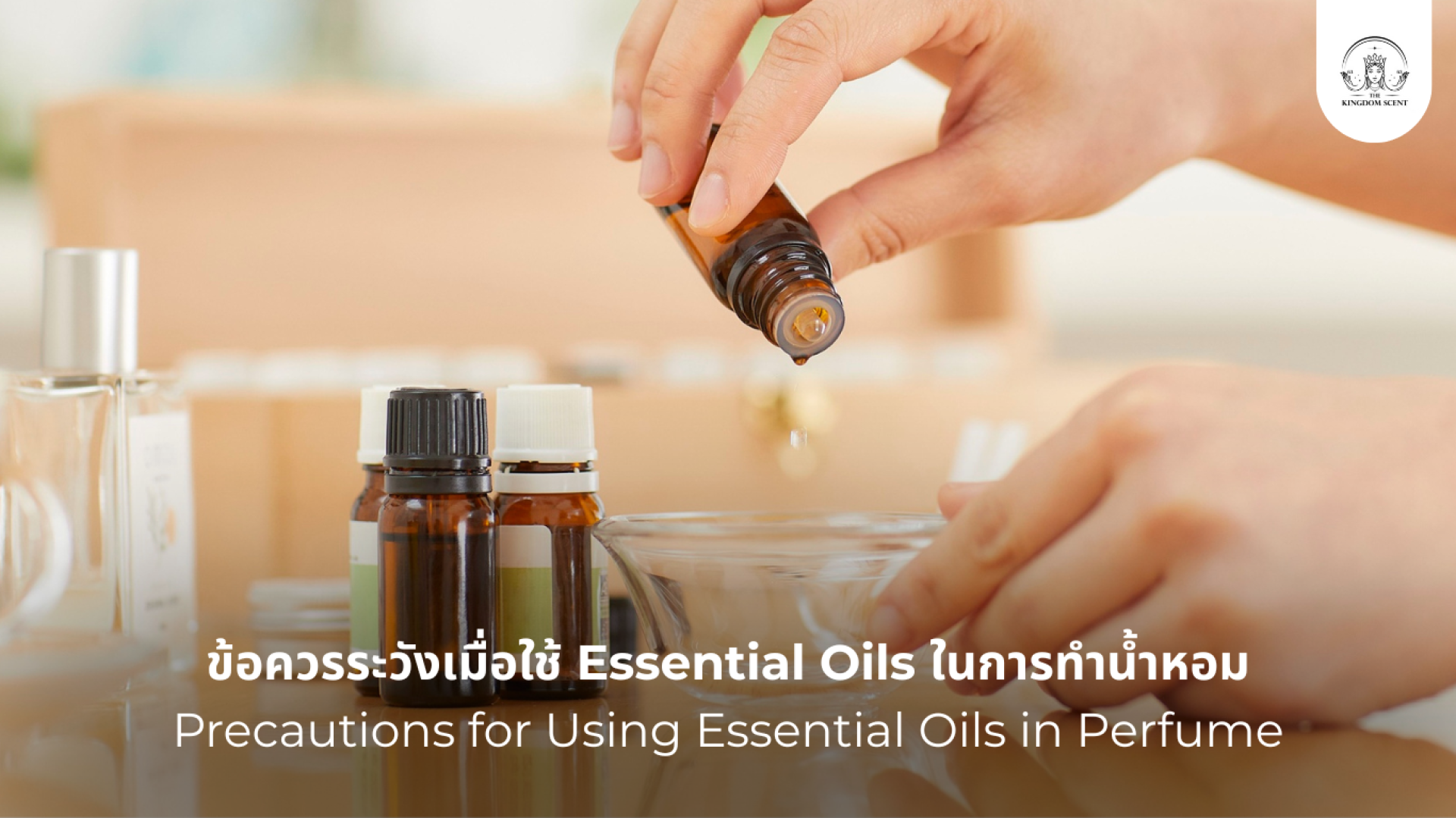Precautions for Using Essential Oils in Perfume

In today's world, where consumers increasingly value natural products, Essential Oils have become a popular ingredient in perfumeryespecially among those seeking chemical-free or organic perfumes.
But while essential oils are derived from plants, they are not 100% safe. When used in improper concentrations or selected without full understanding of their properties, they can pose risks to users and products.
What Are Essential Oils?
Essential oils are highly concentrated aromatic compounds extracted from plantssuch as flowers, leaves, bark, fruit, or rootsthrough methods like steam distillation or cold pressing.
They carry distinct scents and are widely used in skincare, perfumes, and aromatherapy.
️Risks of Using Essential Oils in Perfumes
Though often seen as safe, certain essential oils can cause side effectsespecially when applied directly to the skin or used in high concentrations.
1. Phototoxicity (Light Sensitivity)
Some oils can cause skin irritation, redness, or burns when exposed to sunlight after application.
Common phototoxic essential oils include
- Bergamot (non-FCF: contains furanocoumarins)
- Lemon
- Lime
- Bitter Orange
- Grapefruit
Recommendation: Use only FCF (furanocoumarin-free) versions of phototoxic oils, or avoid them in perfumes that are applied directly on the skin.
2. Skin Irritation
Certain essential oils can cause rashes, itching, or burningespecially for people with sensitive skin.
High-irritation oils include:
- Cinnamon bark
- Clove
- Oregano
- Thyme
- Peppermint (in high amounts)
️*Always perform a patch test if your formula includes a high percentage of essential oils or is intended for sensitive skin users.
3. Sensitization (Allergic Reactions Over Time)
Some individuals may develop delayed allergic responses from repeated exposure to specific compoundseven if they never had prior reactions.
Examples include:
Geraniol (in rose oil)
Citral (in lemon oil)
Eugenol (in ylang-ylang and clove oil)
These are classified as known allergens under EU/IFRA guidelineseven though they are naturally derived.
4. Instability (Oxidation and Scent Degradation)
Some essential oils degrade or oxidize quickly when exposed to light, heat, or air, leading to changes in scent and safety.
Unstable oils include
Sweet Orange
Lemongrass
Store essential oils in dark, airtight bottles and consider adding antioxidants (e.g., Vitamin E/Tocopherol) to slow down degradation.
How to Use Essential Oils Safely in Perfume Formulation
1. Check MSDS and IFRA Certificates
Every essential oil used should come with
Material Safety Data Sheet (MSDS)
IFRA Certificate stating recommended safety limits for different types of products (leave-on, rinse-off, etc.)
2. Use in Proper Dilutions
In general perfume formulas, essential oils should not exceed 5-10% of the total blendespecially for perfumes applied directly to skin.
3. Perform Patch Testing
Before selling your product, always test it on human skin (apply a small amount and monitor for 24-48 hours) to ensure there are no reactions.
4. Avoid High-Risk Oils When Unsure
If you're unsure whether an oil is safe (e.g., non-FCF bergamot), it's best to avoid using it in leave-on products like body sprays or perfumes.
Perfume making with essential oils offers a beautiful connection to naturebut also requires knowledge, caution, and responsibility.
Understanding the properties and risks of each oil ensures both product safety and brand integrity.
Want to Develop a Safe, Essential-Oil-Based Perfume?
At The Kingdom Scent, we offer consultation services for developing natural perfume formulas, including safe dilution rates, allergen checks, and IFRA compliance.
Contact us today to begin crafting your signature scentsafely and beautifully.


